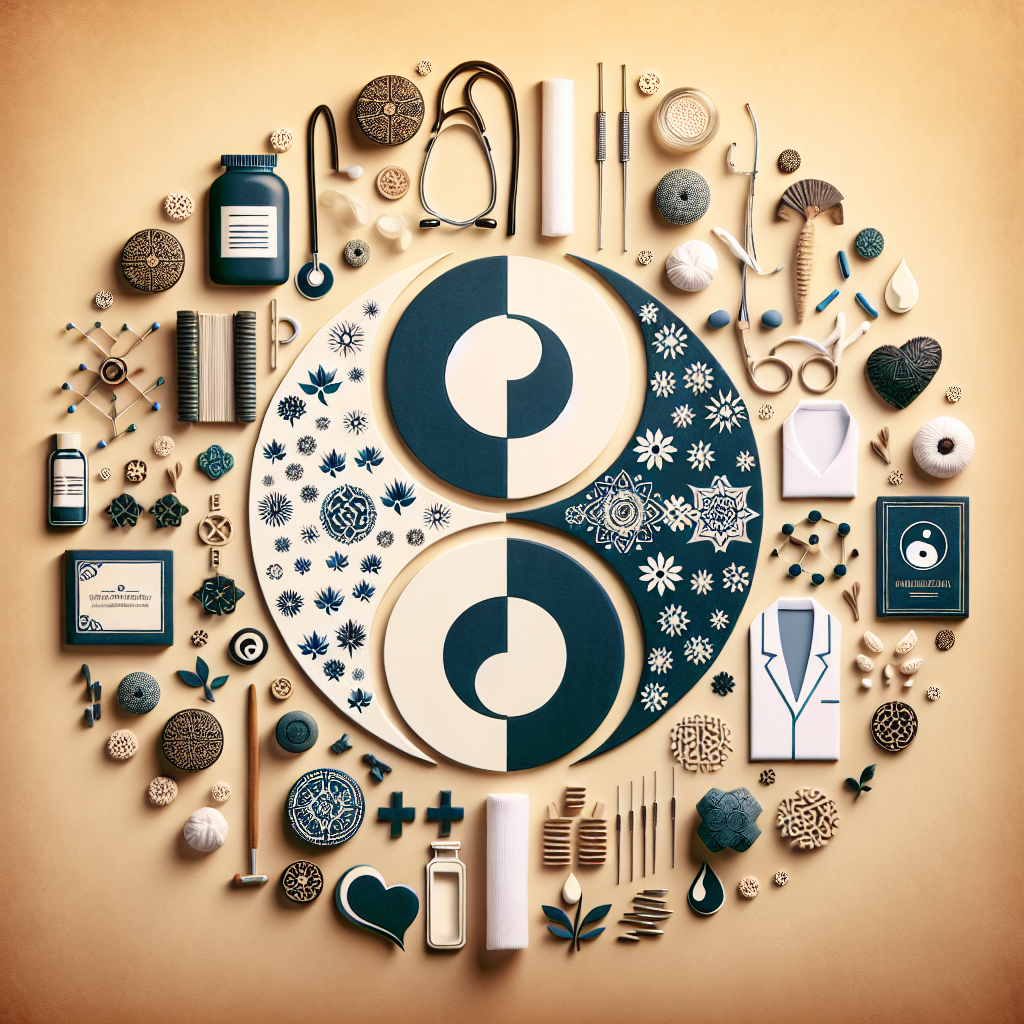Bridging the Gap: Treating Erectile Dysfunction with Western Medicine and Eastern Healing Traditions
Erectile dysfunction (ED) is a common and often distressing condition affecting many men globally. Characterized by the consistent inability to achieve or maintain an erection sufficient for satisfactory sexual performance, ED can have significant psychological, emotional, and relational consequences. The quest for effective treatments has led to the development of varied approaches, ranging from Western medical interventions to Eastern healing traditions. This article delves into these respective treatment modalities, highlighting the potential for an integrative approach to ED management.
Western Medical Approach
Western medicine treats erectile dysfunction through a combination of pharmaceuticals, mechanical devices, lifestyle changes, and psychological interventions. The predominant pharmaceutical treatments include phosphodiesterase type 5 inhibitors (PDE5 inhibitors) such as Sildenafil (Viagra), Tadalafil (Cialis), and Vardenafil (Levitra). These medications enhance the effects of nitric oxide, a natural chemical the body produces to relax the muscles in the penis, increasing blood flow and enabling an erection in response to sexual stimulation.
While PDE5 inhibitors are effective for many men, they are not suitable for everyone. Men with certain medical conditions or those taking medications that interact adversely with these drugs may need to explore other options. For these individuals, vacuum erection devices (VEDs) offer a mechanical solution by creating a vacuum around the penis, drawing blood into the corpora cavernosa to induce an erection.
In cases where these methods prove ineffective, penile implants (prostheses) provide a more invasive yet reliable solution. Surgical implants can be either inflatable or semi-rigid rods, allowing men to achieve an erection at will. Meanwhile, hormone therapy, particularly testosterone replacement therapy, may be appropriate for men with low testosterone levels contributing to ED.
Psychological factors, such as stress, anxiety, and depression, can also play a significant role in ED. Therefore, counseling or psychotherapy, including cognitive-behavioral therapy (CBT), can help address these issues, sometimes in conjunction with medical treatments.
Eastern Healing Traditions
Eastern healing traditions offer a more holistic approach, emphasizing the balance of body, mind, and spirit. Traditional Chinese Medicine (TCM), Ayurveda, and other Eastern practices focus on restoring harmony within the body’s systems.
Traditional Chinese Medicine (TCM)
In TCM, erectile dysfunction is often viewed as a result of imbalances in the body’s vital energy, or Qi, and disruptions in the flow of blood and bodily fluids. Practitioners employ a variety of treatments to restore balance:
– Acupuncture: This ancient practice involves inserting thin needles into specific points on the body to stimulate energy flow and improve circulation. Studies suggest that acupuncture can enhance blood flow to the penis and improve sexual function in men with ED.
– Herbal Medicine: TCM uses a variety of herbal formulas tailored to the individual’s specific imbalances. Commonly used herbs for ED include Ginseng, known for its energy-boosting properties, and Epimedium (Horny Goat Weed), believed to enhance libido and improve erectile function.
– Dietary Therapy and Lifestyle Changes: TCM emphasizes the importance of a balanced diet and healthy lifestyle. Foods that are considered warming, such as ginger and garlic, are thought to enhance vitality and sexual function, while stress-reducing practices like Tai Chi and Qigong promote overall wellness.
Ayurveda
Ayurveda, the traditional system of medicine from India, also approaches ED by addressing the balance of the body’s energies, known as Doshas (Vata, Pitta, and Kapha). Ayurvedic treatments for ED include:
– Herbal Remedies: Ashwagandha, also known as Indian ginseng, is a well-known adaptogen that helps in reducing stress and improving overall vitality. Other herbs like Shilajit and Safed Musli are also used for their rejuvenating properties.
– Diet and Lifestyle Adjustments: Ayurveda places a strong emphasis on diet and lifestyle to maintain balance within the body. Consuming warm, nourishing foods and avoiding excessive caffeine and alcohol can help improve sexual health. Regular exercise, yoga, and meditation are also recommended to reduce stress and enhance overall well-being.
– Panchakarma Therapy: This detoxification and rejuvenation therapy involves techniques such as oil massages, steam treatments, and specific diets designed to cleanse the body and restore balance.
Comparative Analysis
While Western medicine often focuses on direct, immediate solutions to ED, such as medications and surgical interventions, Eastern healing traditions emphasize a holistic and preventative approach. Western treatments are typically symptom-focused, targeting the physiological mechanisms of erection, whereas Eastern methods aim to treat the underlying causes, whether they are physical, emotional, or energetic imbalances.
One significant advantage of Western medicine is its ability to provide quick and effective relief for many men with ED, especially in cases where the condition is due to clear and identifiable physiological issues. However, these treatments may not address underlying health problems or lifestyle factors contributing to ED.
Eastern approaches, on the other hand, offer benefits in terms of promoting overall health and well-being. By addressing lifestyle, diet, and emotional health, these treatments can help prevent the recurrence of ED and improve general quality of life. However, these methods may require more time and commitment from the patient, and their effects can be less predictable and harder to measure than those of pharmaceutical interventions.
Integrative Approach
Given the strengths and limitations of both Western and Eastern approaches, an integrative strategy can offer a comprehensive solution to managing ED. Combining the immediate effectiveness of Western medical treatments with the holistic benefits of Eastern practices can address both the symptoms and root causes of ED.
For instance, a patient might use PDE5 inhibitors for immediate relief while simultaneously adopting TCM or Ayurvedic practices to improve long-term sexual health. This could involve dietary changes, stress reduction techniques, and herbal supplements, creating a synergistic effect that enhances overall well-being and reduces the risk of future erectile problems.
Conclusion
Erectile dysfunction is a multifaceted condition that can benefit from diverse treatment approaches. Western medicine offers quick and targeted solutions, while Eastern healing traditions provide holistic and preventative care. By bridging the gap between these modalities, men with ED can access more comprehensive and effective treatment plans, ultimately improving both their sexual health and quality of life.

